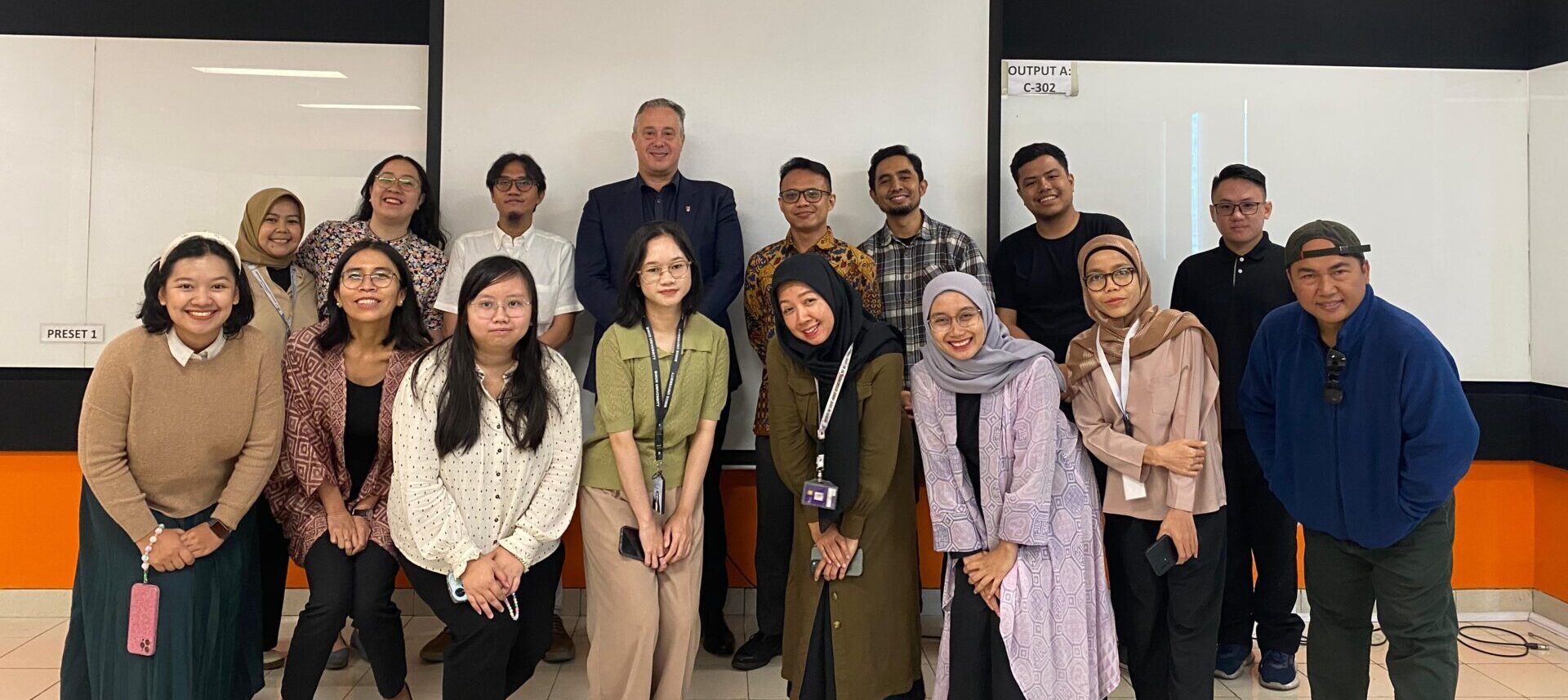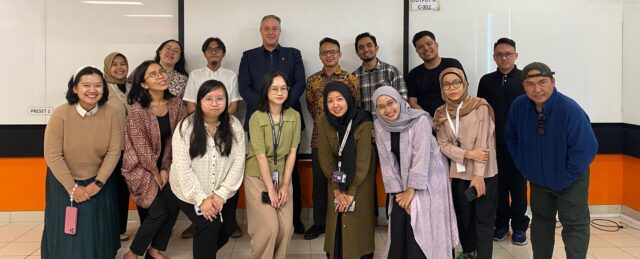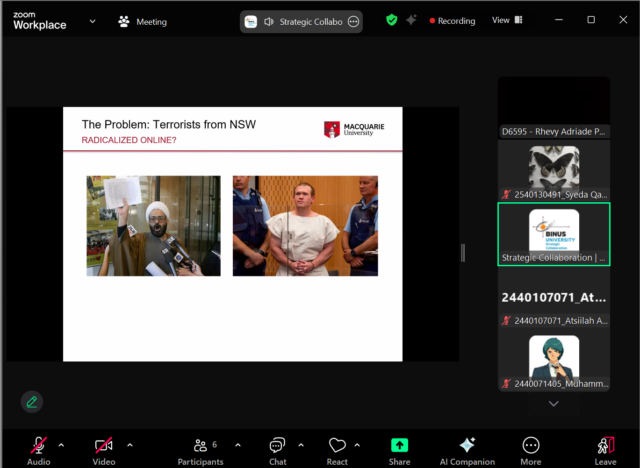The Impact of Violent Extremist Influence Through Social Media

On November 1st, 2024, the IR Department at BINUS University had the pleasure of hosting Dr. Julian Droogan, an Associate Professor from the Department of Security Studies and Criminology within the Faculty of Arts at Macquarie University. He was greeted by Mr. Tangguh Chairil, Lecturer at the Department of International Relations BINUS University, together with some others lecturers from the International Relations Department. His visit was ignited by a compelling subject as he discussed the effects of violent extremist influence via social media. The notion that digital media has reshaped the organization and communication of global communities brings with it a multitude of benefits and drawbacks.
The visit included a captivating discussion held at the Anggrek campus during an event known as the International Relations Lecture Series (IRLS), which welcomed all lecturers to participate in this particular talk to students of International Relations (IR) BINUS. The conversation covered a range of connections, focusing primarily on the issues surrounding the presence of terrorists and extremists in our world. It linked these concerns to the influence of social media and the underlying theories, while also exploring the psychological frameworks involved. Dr. Julian emphasized the numerous issues that become radicalized in the digital realm, pointing out that the underlying network of these problems also originates online. This includes a range of interconnected phenomena such as extremism, terrorism, bullying, conspiracy theories, and others, all of which can reinforce beliefs that lack a solid foundation and contribute to the development of an extremist mindset.
As the conversation unfolded, insights were shared regarding the theories surrounding media and terrorism, evolving from passive to active models in these contexts. The concept revolves around the way individuals engage with media in a non-linear manner, which creates an avenue for extremist content to advance their agenda, disseminating misinformation, instilling fear, and aiding in political indoctrination. This can all be achieved through different applications of the gratification model on the internet as well. Through various means, the online extremist can disseminate this information by forming global communities of individuals who already share the same identity and beliefs, based on the information they have previously shared. In conclusion, Dr. Julian explained that there are psychological frameworks that can react to the materials provided by online extremists, such as narrowcasting, where the audience is specifically targeted with content curated through algorithms and similar methods. Along with various mental perspectives. The discussion concluded with a brief question and answer session, during which Dr. Julian remarked that while nurturing terrorism might be somewhat easier, the dissemination of misinformation and similar issues is significantly more challenging. He emphasized the necessity of considering multiple perspectives, particularly highlighting psychology, as much of this phenomenon is rooted in the psychological aspects of individuals.
The visit strengthened the academic ties between BINUS’s Lecturers and Dr. Julian, while also providing broader concepts and ideas regarding the online realm, disseminating information that will be advantageous for both the lecturer and potentially the students learning from the lecturers who participated in the series.



